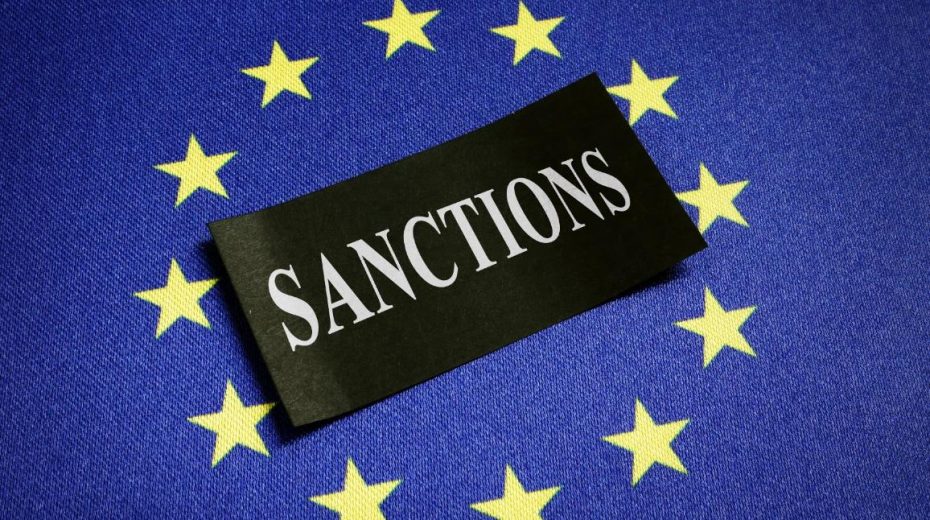
Eighteen! That’s the number of sanction packages which have been passed on Russia by the European Union since the expansion of the Russo-Ukrainian War in 2022.
These sanctions have varied in design but share a common purpose: to persuade Russia to cease its military actions in Ukraine.
They have failed.
Nonetheless, the European Commission is moving forward with a 19th package that, among other proposals, includes a plan to restrict Russian tourist access to the European Union. Since banning tourists outright falls under national jurisdiction and would require approval by a large majority of member states, the Commission is limited to making recommendations. This move follows persistent demands from several Eastern European countries.
This strategy’s rationale is hard to comprehend. Russians now often view Europe as a bastion of pro-LGBTQ liberals who disdain Russia and welcome migrants. Who is more inclined to travel to such a place: a liberal Russian critical of Vladimir Putin, or a conservative Russian opposed to these values? Clearly, the former. Hence, tightening visa access will only confine progressive Russians within their borders.
It will certainly not affect wealthy Russians with property along the French Riviera, as these affluent individuals—who contribute substantially to local economies—will discover ways around visa limitations. The focus here is on tourist visas, distinct from residence permits, student visas (commonly used by affluent Russian families), work permits, or other forms of authorization.
This policy will also have little bearing on Russia’s economy. Tourists typically spend money abroad rather than bringing funds into Russia. Restrictions might inadvertently benefit Russia’s economy or those of allied nations like China, as tourists would redirect their spending internally or to alternative partners.
This is not to imply that accepting money from undesired sources is necessary; refusing funds from certain groups is a valid stance. However, if such measures do not significantly advance Europe’s geopolitical objectives, their purpose is questionable.
The motivation, unfortunately, is clear: Western foreign policy has long been driven by a reflexive call to “Do something!” This mindset has sometimes resulted in calamity, as seen in the West’s intervention in Libya, which destabilized borders and triggered mass migration into Europe. In the case of Russia, such actions have often been senseless. Throughout, these efforts have rarely yielded positive outcomes—they’ve simply “done something.” But foreign policy should be deliberate, particularly amid the evolving multipolar global order. Europe seeks to play a significant role in this emerging structure—so it must avoid futile actions.
Fortunately, effective sanction strategies exist. Over the past weekend, President Donald Trump proposed a plan on Truth Social addressed to “all NATO nations and, the world,” advocating for comprehensive sanctions on Russia and China. Specifically, he recommended imposing “50 per cent to 100 per cent tariffs on China,” noting China’s unique capacity to pressure Russia to halt the conflict. He also emphasized that NATO countries should stop purchasing Russian oil, commenting that “NATO’s commitment to win has been far less than 100 per cent, and the purchase of Russian oil, by some, has been shocking!”
Trump’s points are valid. While Europe has agreed in principle to reduce reliance on Russian oil, measures—including increased defense funding—are repeatedly delayed. The latest sanctions target Russia’s “shadow fleet,” but the critical issue remains the EU’s ongoing purchase of Russian oil. Reports indicate EU officials are contemplating a ban effective in 2028, a date sufficiently distant to be canceled if peace arrives or postponed if necessary.
This leniency is part of why Russia has sustained its war effort so successfully: it has earned billions from Western trade despite numerous sanctions. The European Commission continues releasing a string of largely symbolic sanction packages—now on the 19th—that generate headlines without tackling the core challenges.
President Trump calls for decisive action capable of concluding the conflict. Though Russia has managed to shield its economy to a degree, a full cessation of Western oil purchases would pose genuine difficulties. Similarly, pressing China could compel Moscow to reconsider its stance.
Europe might resist tariffs on China, but with Asia now America’s foremost concern, any credible US engagement in the Russo-Ukrainian conflict naturally depends on European cooperation targeting China as well. Trump’s recommendation serves dual purposes: pressuring Russia to stop hostilities while demonstrating Western unity against China.
Implementing this strategy, however, demands that the European Commission genuinely undertake difficult measures—actions that are politically sensitive and require firm resolve.
Expecting such commitment may prove optimistic.
Original article: brusselssignal.eu




